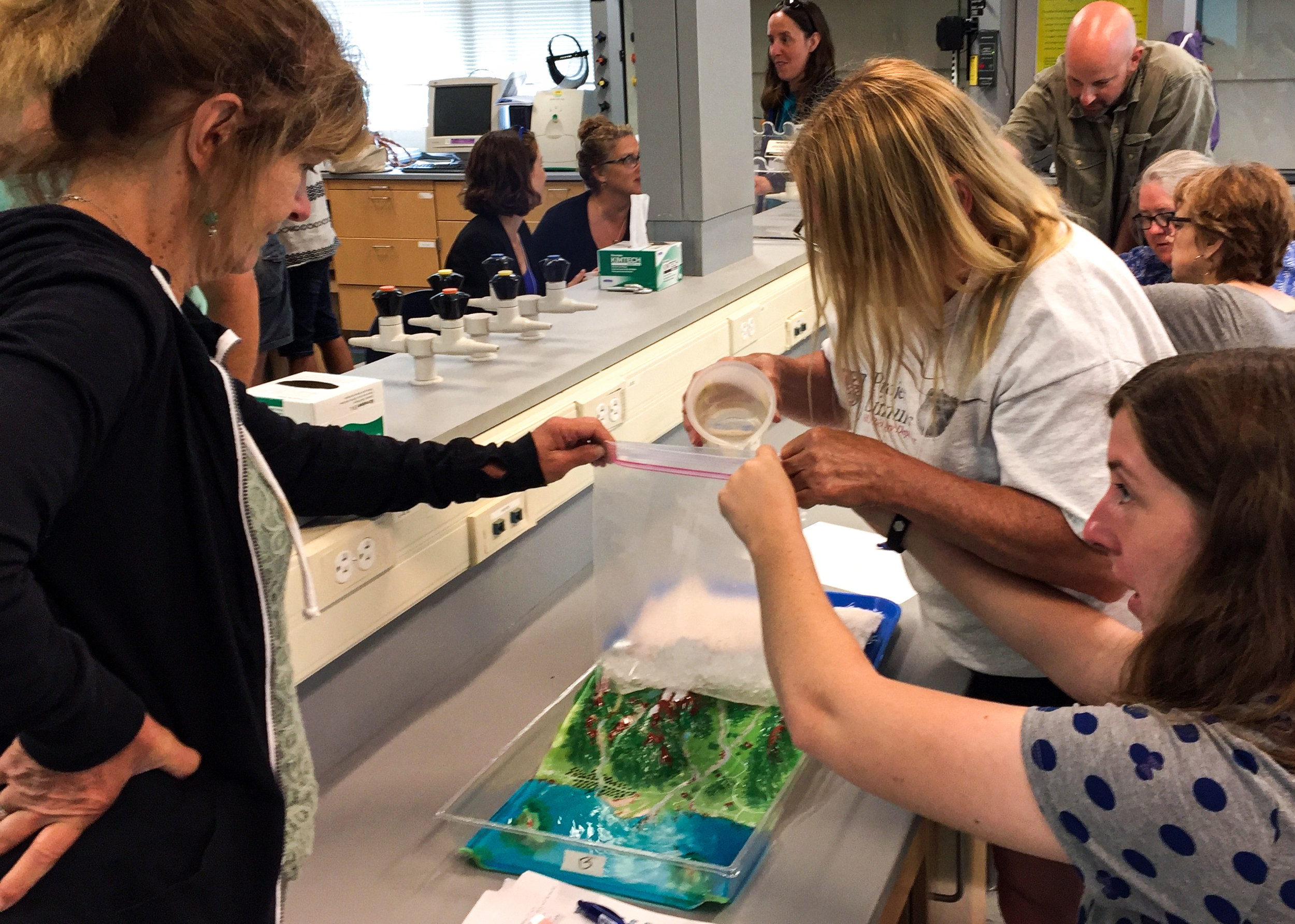Workshops Overview
Participants explore the causes and effects of climate change using models and analyzing graphs. They plan backwards, adapting the hands-on activities to support the required standards for their students. They practice explaining the science clearly and concisely so they feel comfortable teaching the lessons.
Workshops typically run one-and-a-half to two hours, and are limited to twenty participants. Educators are actively engaged in hands-on activities that mirror those they will teach in the classroom. The emphasis here is on learning by doing while constructing lessons.
Depending on the topic, workshops may incorporate the discovery approach, phenomenon-based teaching, project-based learning, problem-based learning, data-based learning, art integration, argument-driven inquiry, or the 5E Instructional Model.
Possible workshop topics:
Analyzing Claims and Conclusions about Climate Change Using Evidence
Climate Action: Persuasive Writing to Oral Presentation (Real Project Based Learning)
Climate Change: A Scientific Phenomenon Becomes a Contemporary Issue
Creating Climate Change Lessons Using NGSS’s Disciplinary Core Ideas, Crosscutting Concepts, and Science & Engineering Practices
Drawing Your Own Conclusions about Climate Change from Data Analysis
Enhancing Literacy through Climate Studies
Experiencing the 5E Instructional Model as a Science Student
Exploring Climate’s Effects on Ocean Habitats (Warming Waters and Ocean Acidification)
Exploring Cycles and Cause and Effect to Understand Earth’s Systems (Biosphere, Atmosphere, Hydrosphere, and Geosphere)
Hands-On Discoveries to Understand Climate Change
Interacting with the Natural Environment: Teaching Young Children Love and Respect
Tailoring Project-Based Climate Education for YOUR Learners
The Cloud-Infused Classroom: Using Technology to Internalize Climate Issues
Using Models to Understand Climate Change
Why are Kids Against Climate Change? Backwards Lesson Planning Using Understanding by Design
Other?
